

-
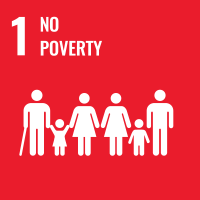
-
End poverty in all its forms everywhere
Customs’ contribution to national revenue through revenue collections, and the subsequent investment of revenues into national development programmes.
-
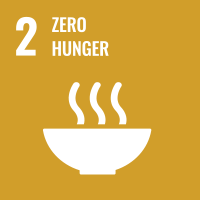
-
End hunger, achieve food security and improved nutrition and promote sustainable agriculture
Improving the food security and food safety through strengthening Customs and inter-agency controls at the borders, automation of issuance and monitoring of use of phytosanitary and veterinary certificates, integrated quota monitoring for agricultural exports and imports.
-
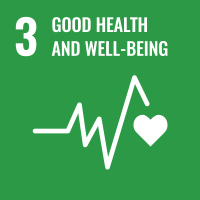
-
Ensure healthy lives and promote well-being for all at all ages
Automated customs control of movement of excisable goods/tobacco products (ASYCUDA-DTCS). Strengthening of customs and inter-agency controls at the border for trade in goods that affect human health (e.g. food safety, pharmaceuticals, cosmetics and dangerous drugs), introduction of electronic certificates, integrated risk management and surveillance mechanism in the ASYCUDA and Single Window environment.
-
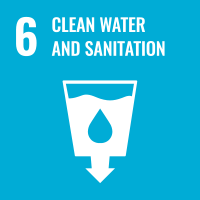
-
Ensure availability and sustainable management of water and sanitation for all
ASYCUDA provides automated support to customs as it applies its controls in compliance with the international conventions of Basel, Rotterdam, and Stockholm, the Montreal protocol on substances that deplete the ozone layer, water quality is expected to improve by reducing pollution, eliminating dumping and minimizing release of hazardous chemicals and materials.
-
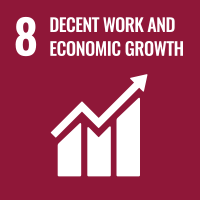
-
Promote sustained, inclusive and sustainable economic growth, full and productive employment and decent work for all
Customs makes a key contribution to facilitating trade, enabling access to global value chains, innovation, economic growth and employment opportunities.
-
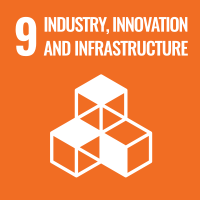
-
Build resilient infrastructure, promote inclusive and sustainable industrialization and foster innovation
By embedding early taking of ownership and sustainability in its TA approach and the use of ASYCUDA, which has always combined state-of-the-art advanced technologies with proven in-the-field expertise, UNCTAD ensures an efficient and tailored support to countries thus contributing to their ICT infrastructure development and upgrade, especially in least developed countries and Africa, and by improving regional and trans-border infrastructure.
-
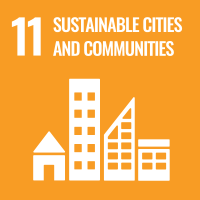
-
Make cities and human settlements inclusive, safe, resilient and sustainable
ASYCUDA supports development of customs and trade infrastructure (ports, logistics terminals, warehouses, supply chains in cities) and contributes to the facilitation of legal cross-border movements and fight against illicit trafficking of cultural and natural heritage, including cooperation with other CBRAs operating in the regulatory fields related to cultural and natural heritage protection.
-
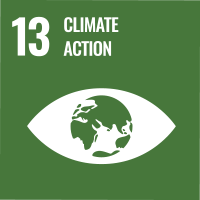
-
Take urgent action to combat climate change and its impacts
ASYCUDA support customs for improved Ozone Depleting Substances’ control by providing tools to monitor the legal trade and preventing the illegal trade in Ozone Depleting Substances (Montreal protocol) and Timber.
-
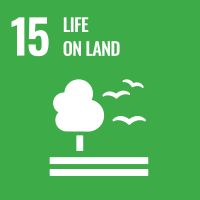
-
Protect, restore and promote sustainable use of terrestrial ecosystems, sustainably manage forests, combat desertification, and halt and reverse land degradation and halt biodiversity loss
Customs contributes to protecting society from unwanted pests and preventing the flow of illicit wildlife products by applying health and agricultural policies, and IPPC Convention; Customs also helps to take urgent action to end poaching and trafficking of protected species of flora and fauna and address both demand and supply of illegal wildlife products by applying the CITES Convention. eCITES Electronic Permitting System developed and implemented under a MOU between the CITES Secretariat and UNCTAD with support from Swiss government.
-
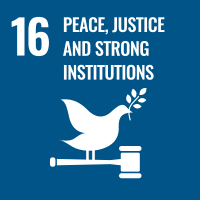
-
Substantially reduce corruption and bribery in all their forms
Simplification and digitalization of Customs and CBRA procedures to decrease human interactions, thus contributing to good governance, transparency and accountability, and the fight against corruption.
-
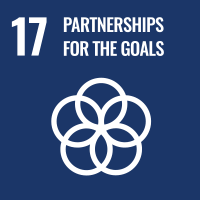
-
Strengthen the means of implementation and revitalize the Global Partnership for Sustainable Development
The ASYCUDA customs system, by applying international standards, trade-related agreements, and through collaborating with other national authorities, countries and international agencies such as the WCO, contributes to increased efficiency and coordination, strengthened resource mobilization and trade facilitation and statistics. In addition, the ASYCUDA Programme organizes a multitude of study tours, technical and functional training sessions for customs delegations to visit and learn from experiences in implementing new technology and/or new infrastructure in other parts of the world. Thus directly contributing to North-South and South-South international and regional cooperation.
-

-
End poverty in all its forms everywhere
Customs’ contribution to national revenue through revenue collections, and the subsequent investment of revenues into national development programmes.
-

-
End hunger, achieve food security and improved nutrition and promote sustainable agriculture
Improving the food security and food safety through strengthening Customs and inter-agency controls at the borders, automation of issuance and monitoring of use of phytosanitary and veterinary certificates, integrated quota monitoring for agricultural exports and imports.
-

-
Ensure healthy lives and promote well-being for all at all ages
Automated customs control of movement of excisable goods/tobacco products (ASYCUDA-DTCS). Strengthening of customs and inter-agency controls at the border for trade in goods that affect human health (e.g. food safety, pharmaceuticals, cosmetics and dangerous drugs), introduction of electronic certificates, integrated risk management and surveillance mechanism in the ASYCUDA and Single Window environment.
-

-
Ensure availability and sustainable management of water and sanitation for all
ASYCUDA provides automated support to customs as it applies its controls in compliance with the international conventions of Basel, Rotterdam, and Stockholm, the Montreal protocol on substances that deplete the ozone layer, water quality is expected to improve by reducing pollution, eliminating dumping and minimizing release of hazardous chemicals and materials.
-

-
Build resilient infrastructure, promote inclusive and sustainable industrialization and foster innovation
By embedding early taking of ownership and sustainability in its TA approach and the use of ASYCUDA, which has always combined state-of-the-art advanced technologies with proven in-the-field expertise, UNCTAD ensures an efficient and tailored support to countries thus contributing to their ICT infrastructure development and upgrade, especially in least developed countries and Africa, and by improving regional and trans-border infrastructure.
-

-
Make cities and human settlements inclusive, safe, resilient and sustainable
ASYCUDA supports development of customs and trade infrastructure (ports, logistics terminals, warehouses, supply chains in cities) and contributes to the facilitation of legal cross-border movements and fight against illicit trafficking of cultural and natural heritage, including cooperation with other CBRAs operating in the regulatory fields related to cultural and natural heritage protection.
-

-
Take urgent action to combat climate change and its impacts
ASYCUDA support customs for improved Ozone Depleting Substances’ control by providing tools to monitor the legal trade and preventing the illegal trade in Ozone Depleting Substances (Montreal protocol) and Timber.
-

-
Protect, restore and promote sustainable use of terrestrial ecosystems, sustainably manage forests, combat desertification, and halt and reverse land degradation and halt biodiversity loss
Customs contributes to protecting society from unwanted pests and preventing the flow of illicit wildlife products by applying health and agricultural policies, and IPPC Convention; Customs also helps to take urgent action to end poaching and trafficking of protected species of flora and fauna and address both demand and supply of illegal wildlife products by applying the CITES Convention. eCITES Electronic Permitting System developed and implemented under a MOU between the CITES Secretariat and UNCTAD with support from Swiss government.
-

-
Substantially reduce corruption and bribery in all their forms
Simplification and digitalization of Customs and CBRA procedures to decrease human interactions, thus contributing to good governance, transparency and accountability, and the fight against corruption.
-

-
Strengthen the means of implementation and revitalize the Global Partnership for Sustainable Development
The ASYCUDA customs system, by applying international standards, trade-related agreements, and through collaborating with other national authorities, countries and international agencies such as the WCO, contributes to increased efficiency and coordination, strengthened resource mobilization and trade facilitation and statistics. In addition, the ASYCUDA Programme organizes a multitude of study tours, technical and functional training sessions for customs delegations to visit and learn from experiences in implementing new technology and/or new infrastructure in other parts of the world. Thus directly contributing to North-South and South-South international and regional cooperation.



